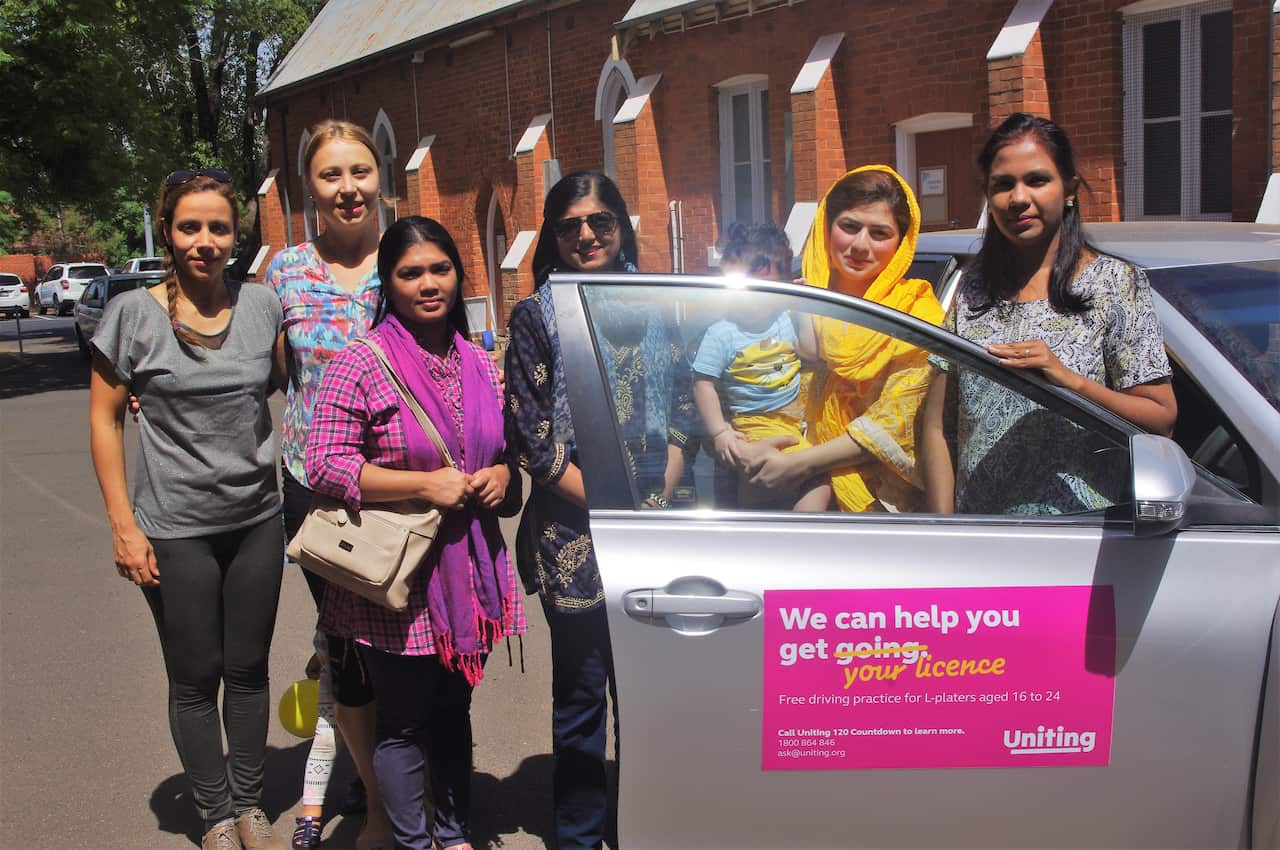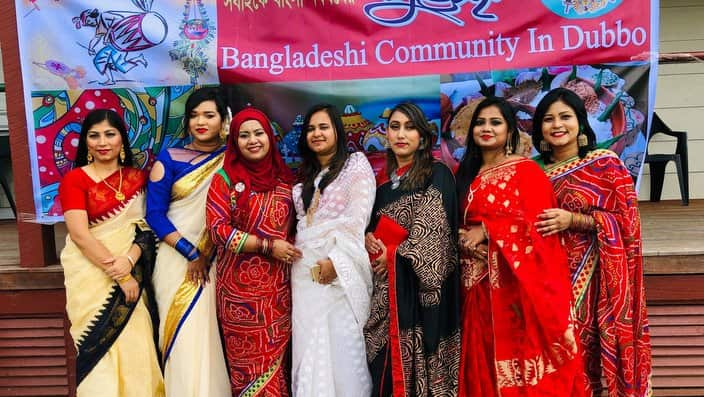Amberdeen Khalid is happily working two jobs and raising her family in Dubbo, in the Orana region of New South Wales.
She moved to Australia from Pakistan eight years ago, and while she felt welcomed the second she arrived, moving to a regional town sparked an unfamiliar feeling.
“You become so isolated ... you’re basically stuck in your house," she told SBS News.
Ms Khalid couldn't drive.
“You need cars in regional areas and I think that’s something migrants don’t realise. Everyone needs to drive here, I didn't [realise].”
The once independent "workaholic" said she became "totally dependent on my husband" and because he worked full-time, she would often choose to stay at home and not ask him to run errands to avoid being a hindrance.

Eventually, Ms Khalid found 120 Countdown, a free program run by non-profit organisation Uniting, which connects adults with volunteer mentors for the 120 hours of driving practice they need before applying for their P-plates.
She now holds an automatic driver licence and believes the program could help migrants settle sooner in the region, particularly women.
“I used to just walk where I could. Now I go to the library and anywhere fun,” she said.
Earlier this year, the Australian Federal Government announced a $19.4 million plan to entice migrants to move to regional parts of Australia. Under the plan, skilled migrants will have their visa applications accelerated if they live remotely.
But for some women of certain cultural backgrounds, driving is not deemed a necessary skill, Ms Khalid said, fearing others who have migrated to regional Australia could be feeling "stuck".
Ekaterina Martymova migrated to Australia from Russia with her husband. They studied in Sydney until work led them to Dubbo.
The couple have a two-year-old daughter, Tania, who became a Ms Martymova's main motivator to get behind the wheel with the help of 120 Countdown.
“I wasn’t nervous, it’s like, 'I need this'. It’s quite a big step in my life, quite a big decision to start this driving,” she said.
“It can be scary, especially when you have a baby and you have no one that can stay with her while I learn my driving. So when I found the program, they gave me the confidence, yes you can, they help you work around your children."
She is now learning how to drive a manual vehicle.
Isolation issues
Uniting Care, one of Australia's largest providers of community services, works with more than 127 cultural groups who experience social isolation daily.
Senior coordinator Sally Hazell said women and children were particularly vulnerable to social isolation, and that it can exacerbate other issues.
"As women spend considerable time at home caring for children and engaged in domestic duties they can become detached from the broader community even with those from their cultural background," she said.
"If women experience domestic violence this can become worse and if they live in a household with a domineering partner or parents-in-law the isolation can become considerable."

Recent data from the Australian Bureau of Statistics shows migrants who speak other languages (6.3 per cent) are less than half as likely to actively participate in civic and political groups than recent migrants who speak English (14 per cent).
Ms Hazell said migrant women with no family in Australia or with limited English skills were some of the loneliest.
"Unless they can connect with other women from their cultural background, have an opportunity to meet people at their child’s school or are able to get work, they can go for years with very little social support during difficult times or while bringing up their children," she said.
A recent study revealed new migrants who settle in regional Australia increasingly end up moving to cities.
The Australian National University found more than 60 per cent of migrants moved to a capital city after about five years of living in a regional or remote location.
The study went as far as saying new migrants were "fleeing" regional Australia for better opportunities in the cities - professionally and socially.
But for Ms Martymova and Ms Khalid, Dubbo has everything they need, especially now they can access it.
"I love everything about Dubbo, but the most important thing is the traffic is not much.”
The 120 Countdown program is so far being offered in Dubbo, Nambucca Valley, Penrith and Wyong in NSW.
And with more migrants expected to make the move to her new hometown, Ms Khalid is staying on as a volunteer mentor for the program.
“I want to encourage people to drive so they can mobilise themselves," she said.
"Most of the women, they only have their husbands and partners and they’re coping with the stresses of a new job in a new country. I would really love to support them."

